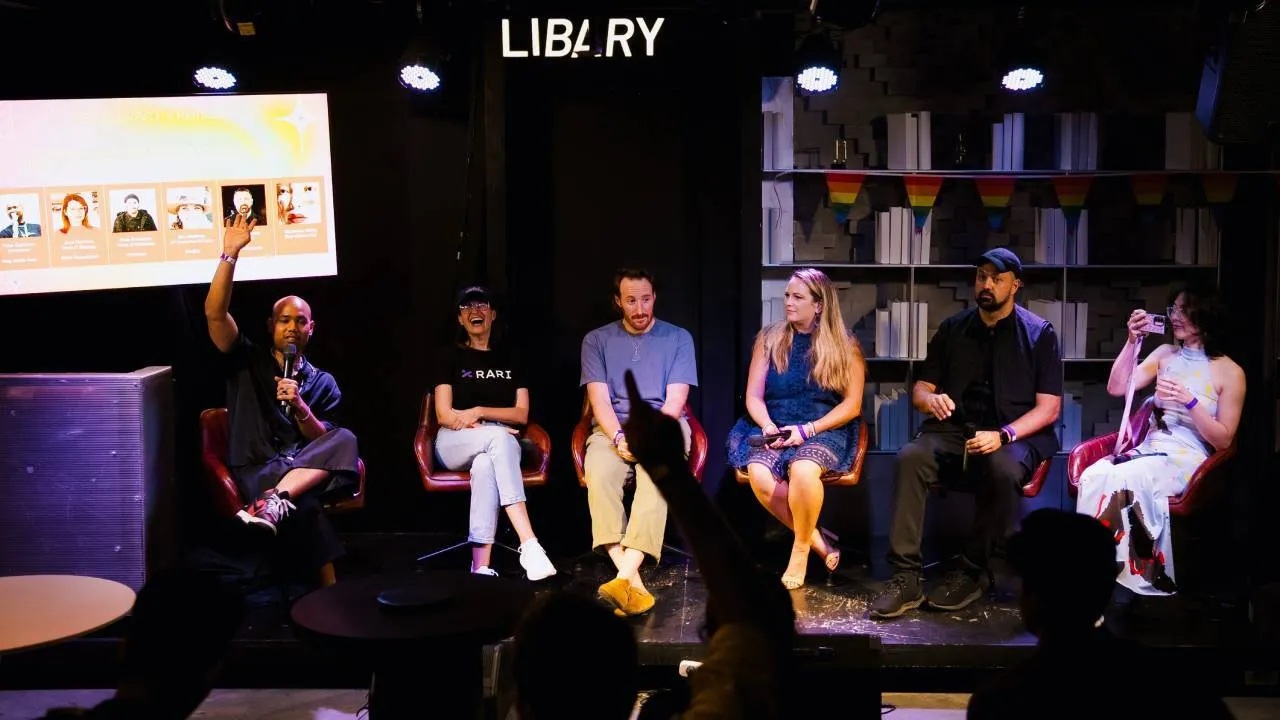Non-fungible tokens (NFTs) are evolving to create more “value and utility” for their creators and users, according to a recent panel discussion on "Navigating the Evolving NFT Landscape" at the TEN by RARI x Refraction event in Bangkok.
While the creator economy is the “flagship use case” of NFTs for consumers and retail, “There's going to be a lot of other applications of NFTs which are just in the backend,” Jana Bertram, Head of Strategy at RARI Foundation, told Rug Radio creator Pukerainbow.
Users won’t know that NFTs power the application, she said, adding that, “nobody really will care—it's just something that functions, but it will be powered by those NFTs.” She pointed to RARI Protocol’s integration with multiple ecosystems and chains, adding that “this tech stack can be powering NFT growth in all these different ecosystems.”
From speculation to impact-driven NFTs
As the technology underpinning NFTs evolves, so too are NFTs themselves, offering “different kinds of mechanisms you can play with,” said new media artist Shavonne Wong. Justin Gilanyi, Curator at Codex Projects added that during the crypto bear market, dedicated NFT artists, fashion designers and musicians have worked on “building their craft, learning their tools, and really developing their concepts.”
Creators are experimenting with the new tools available to them to add “meaning and story” to their NFTs, Bertram said. “You can then think about community and using NFTs as an engagement mechanism,” she added.
Sam Friedman, Head of Marketing at Arbitrum, pointed to a recent example where users, “could burn an NFT to then get a piece of physical merch, if that's what you want.” Another emerging use case is to “soulbound an NFT to someone, and then you can use that as a mechanism to then send subsequent information to that wallet address,” he said.
Educating creators
There are still “hurdles and thresholds to overcome for mass adoption,” said Gilanyi, with Friedman adding that, “Education and distribution are the things that we really have to work on, especially in the creator space.”
That education needs to encompass a broader view of Web3, beyond just minting NFTs or earning royalties on secondary sales, said Bertram. She explained that RARI is “onboarding creators" to decentralized finance (DeFi), so that they can “experience a bit of a different angle in Web3” and learn new ways to monetize their skills, such as staking and yield farming. To that end, RARI has launched workshops in locations around the globe, including Lagos, Bangkok, Lisbon and New York, to connect with NFT creators and educate them on the wider possibilities of Web3.
NFTs are about much more than just art, the panel argued, enabling creators to build deeper connections with audiences. “We have artists not only creating art, but creating experiences, creating activations, creating content,” said Gilanyi.
"Creator first" innovations
Increasingly, traditional artists are being drawn to the technology, thanks to “creator first” innovations such as royalties that are embedded directly onto NFTs. “On RARI Chain, it's amazing that on the code level there are creator royalties embedded,” said Gilanyi.
Bertram explained that RARI Chain has leveraged Arbitrum One’s technology stack to seamlessly integrate royalties at the “sequencer” level. “In very plain terms, the sequencer will not enable or validate a transaction that does not respect royalties,” she explained.
By ensuring that royalties are “baked in,” Friedman said, it opens up wider possibilities for creators, such as royalties attached to physical products like sneakers.
“Creating is hard, and I think there's a sense of bravery that has to come with that and putting yourself out there,” Friedman said, explaining that NFT royalties enable creators to ensure that they have steady revenue streams. “Making sure that you're taking care of yourself is something that I think is really valuable and really important,” he said. “So doing that on a blockchain level is a way to protect it.”
With the crypto market picking up, a “trickle-down effect is happening,” bringing newcomers to the space, said Kim Madison, VP of Customer Success at Rarible. She added that, “Obviously, none of us really have a crystal ball to know what's going to happen in the future, but I think the trajectory of where we're at right now, it's going to be an exciting ride, and I think it's only going to go up from here.”
Stay on top of crypto news, get daily updates in your inbox.




